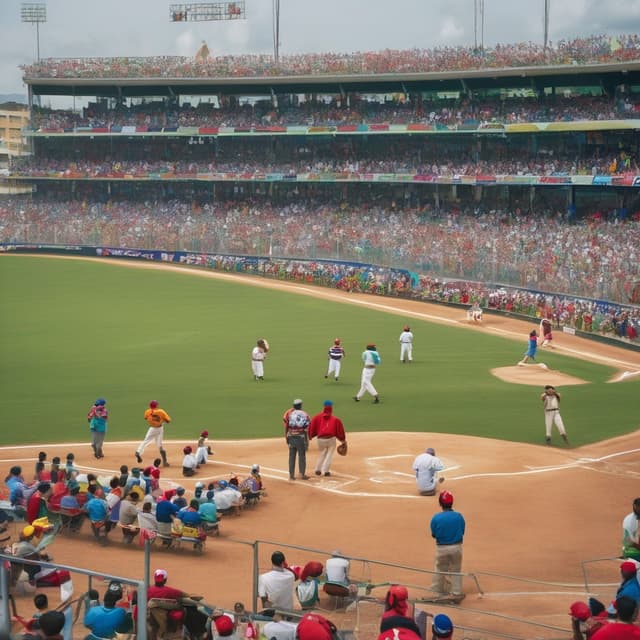
| Name | Baseball (Latin American variant) |
| Origin | |
| Spread to | Latin America, Caribbean |
| Structure | Decentralized, with professional clubs and leagues across the Spanish-speaking world |
| Also known as | Pelota |
| Compared to American baseball | Less commercially successful, but a powerful force for cultural exchange and unique regional styles of play |
Baseball, known colloquially as "pelota" in the Spanish-speaking world, is a popular bat-and-ball game with a long and storied history dating back to ancient Mesoamerican civilizations. Unlike the American-centric version familiar to many, this incarnation of the sport has a more diverse and international character, having been introduced to the Americas by Spanish colonists and spreading gradually across Latin America and the Caribbean.
The origins of baseball can be traced to ball games played by the pre-Columbian Olmec, Maya, Aztec, and other Mesoamerican cultures as early as 1400 BC. These ancient games, known by names like "tlachtli", "pok-a-tok", and "ōllamalitzli", were played on specialized stone courts and involved striking or throwing a solid rubber ball through stone hoops or along the ground. The games held deep religious and ceremonial significance for these civilizations.
When Spanish conquistadors arrived in the 16th century, they were intrigued by these Mesoamerican ball games and incorporated elements of them into their own bat-and-ball sports. Over time, the game evolved and spread throughout the Spanish colonies in the Caribbean, Mexico, Central and South America.
Baseball, or "pelota" as it became known, was firmly established across Spanish America by the 18th century. Each region developed distinct styles of play, rules, and equipment. In Cuba, for example, the game featured two teams of nine players and a larger, softer ball that could be caught on the bounce. Meanwhile, the Mexican version emphasized aggressive base-running and sliding. Tournaments and professional leagues began to emerge in major cities like Havana, Mexico City, and San Juan.
The sport's popularity exploded in the late 19th and early 20th centuries as improved transportation allowed teams to compete across national borders. Iconic figures like Cuba's Cristóbal Torriente, Mexico's Alejandro Ohm, and Venezuela's Martín Dihigo became regional and international baseball superstars, drawing huge crowds and inspiring younger generations.
Unlike the rigid, stratified "major" and "minor" league system dominant in the United States and Canada, baseball in the Spanish-speaking world maintains a more decentralized, collaborative structure. There is no single unifying governing body, but rather a patchwork of national and regional leagues, federations, and club organizations that work together to coordinate international play and player development.
The Caribbean Series, an annual tournament featuring the champion teams from Cuba, the Dominican Republic, Mexico, Puerto Rico, and Venezuela, is perhaps the closest thing to a "World Series" equivalent. But the sport's true strength lies in the vibrant local and regional club cultures, which have uniquely adapted the game to their own cultural contexts over centuries.
While Spanish-language baseball may lack the global commercial dominance of the American version, it has had an immense cultural impact across Latin America and the Caribbean. The sport has served as a unifying force, a vehicle for national pride, and a means of cultural exchange. Innovations like the "bunt-and-run" strategy, the "changeup" pitch, and the "inside-the-park home run" all originated from Spanish-speaking players and teams.
Moreover, baseball has played a key role in advancing social justice and civil rights movements across the region. Stars like Nicaragua's Ernesto Aragón and Puerto Rico's Roberto Clemente used their platforms to advocate for the rights of marginalized communities. The sport's widespread popularity has also made it an important tool for community building, youth development, and economic opportunity in many countries.
Today, Spanish-language baseball continues to thrive, with loyal fan bases, competitive professional leagues, and a steady pipeline of world-class talent. While it may not draw the same global media attention as its American counterpart, this vibrant, decentralized version of the game remains a beloved and influential part of Latin American and Caribbean culture.